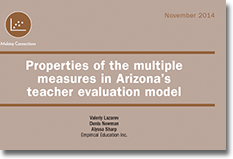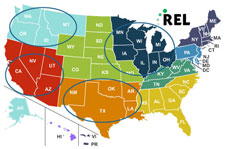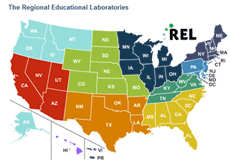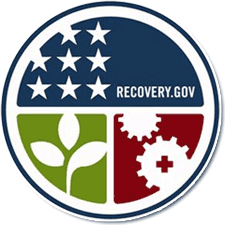John Q Easton, director of the Institute of Education Sciences (IES), came to New Orleans recently to participate in the annual meeting of the American Educational Research Association. At one of his stops, he was the featured speaker at a meeting of the Directors of Research and Evaluation (DRE), an organization composed of school district research directors. (DRE is affiliated with AERA and was recently incorporated as a 501©(3)). John started his remarks by pointing out that for much of his career he was a school district research director and felt great affinity to the group. He introduced the directions that IES was taking, especially how it was approaching working with school systems. He spent most of the hour fielding questions and engaging in discussion with the participants. Several interesting points came out of the conversation about roles for the researchers who work for education agencies.
Historically, most IES research grant programs have been aimed at university or other academic researchers. It is noteworthy that even in a program for “Evaluation of State and Local Education Programs and Policies,” grants have been awarded only to universities and large research firms. There is no expectation that researchers working for the state or local agency would be involved in the research beyond the implementation of the program. The RFP for the next generation of Regional Education Labs (REL) contracts may help to change that. The new RFP expects the RELs to work closely with education agencies to define their research questions and to assist alliances of state and local agencies in developing their own research capacity.
Members of the audience noted that, as district directors of research, they often spend more time reviewing research proposals from students and professors at local colleges who want to conduct research in their schools, rather than actually answering questions initiated by the district. Funded researchers treat the districts as the “human subjects,” paying incentives to participants and sometimes paying for data services. But the districts seldom participate in defining the research topic, conducting the studies, or benefiting directly from the reported findings. The new mission of the RELs to build local capacity will be a major shift.
Some in the audience pointed out reasons to be skeptical that this REL agenda would be possible. How can we build capacity if research and evaluation departments across the country are being cut? In fact, very little is known about the number of state or district practitioners whose capacity for research and evaluation could be built by applying the REL resources. (Perhaps, a good first research task for the RELs would be to conduct a national survey to measure the existing capacity.)
John made a good point in reply: IES and the RELs have to work with the district leadership—not just the R&E departments—to make this work. The leadership has to have a more analytic view. They need to see the value of having an R&E department that goes beyond test administration, and is able to obtain evidence to support local decisions. By cultivating a research culture in the district, evaluation could be routinely built in to new program implementations from the beginning. The value of the research would be demonstrated in the improvements resulting from informed decisions. Without a district leadership team that values research to find out what works for the district, internal R&E departments will not be seen as an important capacity.
Some in the audience pointed out that in parallel to building a research culture in districts, it will be necessary to build a practitioner culture among researchers. It would be straightforward for IES to require that research grantees and contractors engage the district R&E staff in the actual work, not just review the research plan and sign the FERPA agreement. Practitioners ultimately hold the expertise in how the programs and research can be implemented successfully in the district, thus improving the overall quality and relevance of the research.





